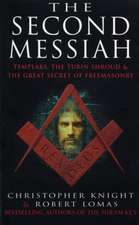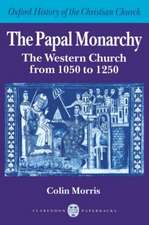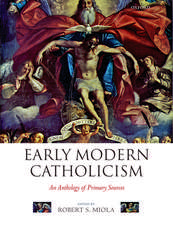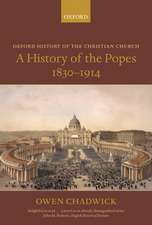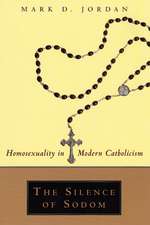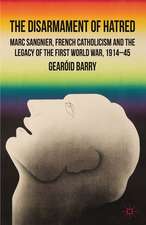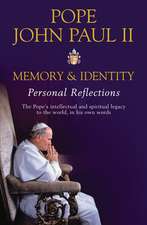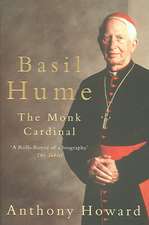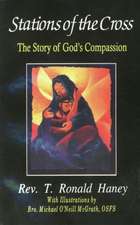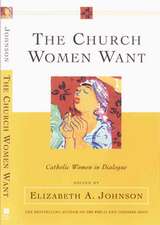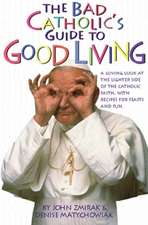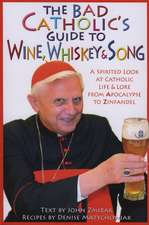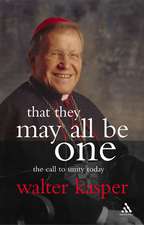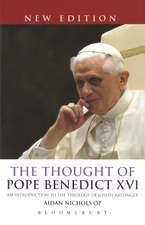Catholicism, Popular Culture, and the Arts in Germany, 1880–1933
Autor Margaret Stieg Daltonen Limba Engleză Hardback – 13 ian 2005
| Toate formatele și edițiile | Preț | Express |
|---|---|---|
| Paperback (1) | 362.87 lei 43-57 zile | |
| MR – University of Notre Dame Press – 13 ian 2005 | 362.87 lei 43-57 zile | |
| Hardback (1) | 699.63 lei 43-57 zile | |
| MR – University of Notre Dame Press – 13 ian 2005 | 699.63 lei 43-57 zile |
Preț: 699.63 lei
Preț vechi: 958.40 lei
-27% Nou
Puncte Express: 1049
Preț estimativ în valută:
133.87€ • 140.15$ • 110.77£
133.87€ • 140.15$ • 110.77£
Carte tipărită la comandă
Livrare economică 07-21 aprilie
Preluare comenzi: 021 569.72.76
Specificații
ISBN-13: 9780268025663
ISBN-10: 0268025665
Pagini: 392
Dimensiuni: 166 x 243 x 36 mm
Greutate: 0.73 kg
Ediția:1
Editura: MR – University of Notre Dame Press
ISBN-10: 0268025665
Pagini: 392
Dimensiuni: 166 x 243 x 36 mm
Greutate: 0.73 kg
Ediția:1
Editura: MR – University of Notre Dame Press
Notă biografică
MARGARET STIEG DALTON is a historian and professor in the School of Library and Information Studies at the University of Alabama.
Descriere
“Works on the German Catholic subculture are few and far between. This book is based on extensive research into archival and published primary sources. It should be of interest to a wide variety of historians concerned with German history, cultural history, and the history of religion.” —Jonathan Sperber, University of Missouri, Columbia
"The conflict between organized religion and the emergence of modernist thought is not new. This study particularizes one important chapter in that conflict: the disparity between the Catholic cultural movement and its secular counterpart in Germany during the period of the Kulterkampf and the years preceding the ascent of the Nazi party. At a time when certain religious sects are animating world-wide disturbance, this account of another cultural struggle based on differing religious perceptions is remarkably pertinent." —R. Kathleen Molz, Columbia University
Margaret Stieg Dalton offers a comprehensive study of the German Catholic cultural movement that lasted from the late nineteenth century until 1933. Rapidly advancing industrialization, higher literacy rates, rising real income, and increased leisure time created a demand for intellectually accessible entertainment. Technological developments gave rise not only to new forms of entertainment, but also to the means by which they were marketed and disseminated. At the same time, the effects of modernism were being felt in all areas of high culture. Dalton’s book examines the encounter of clergy and lay Catholics with both high culture and popular culture in Germany.
Recenzii
“Building on several decades of research by scholars on Catholicism in Germany, Margaret Stieg Dalton’s book examines the Catholic cultural movement that followed the Kulturkampf, reached its apogee before the war, shifted into new fields in the 1920s, and, finally, declined in the last years of the Weimar Republic...Dalton points out that the question driving the Catholic cultural movement was how Catholics should respond to secular, modern culture.”—American Historical Review
"One of the great advances of this study is the author's ability to marshal an enormous amount of this otherwise inaccessible information into a coherent narrative and present it to an English-speaking audience. . . . Her book will go a long way in illuminating the Valkskultur of Weimar Germany up to the tragic precipice of Hitler's thuggish rise to prominence." —Catholic Library World
“Her book breaks ground in assessing the role of culture in the German Catholic milieu, exposes the internal problems behind the long-term failure of the confessional cultural movement, and lays a strong foundation for future research that would link this important topic to broader themes of modern German history.” — The Catholic Historical Review

